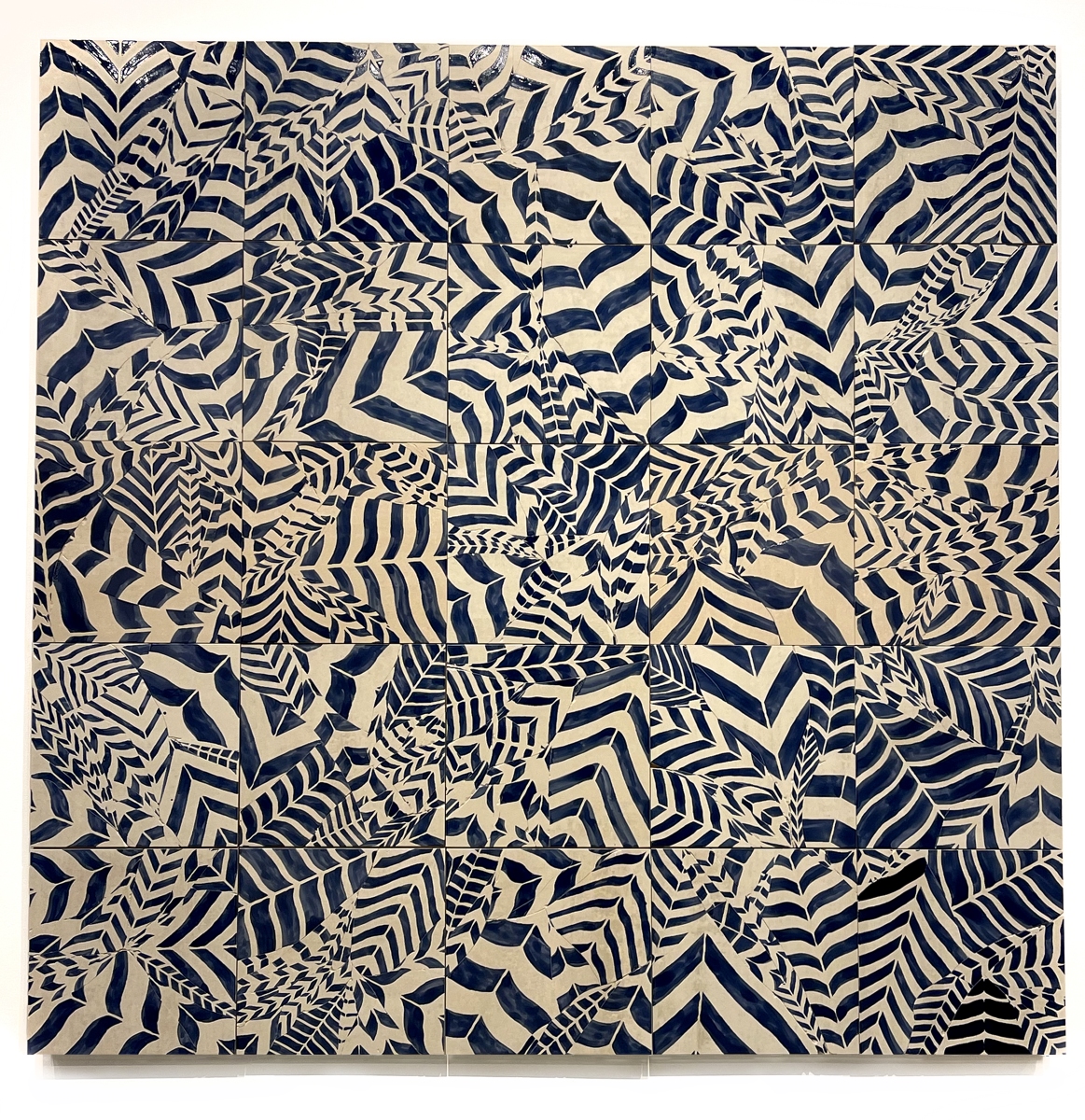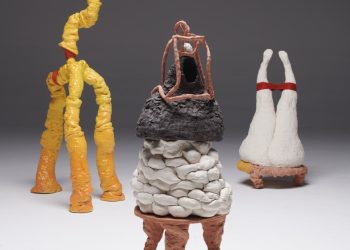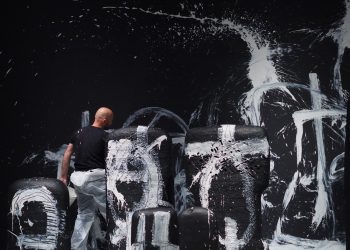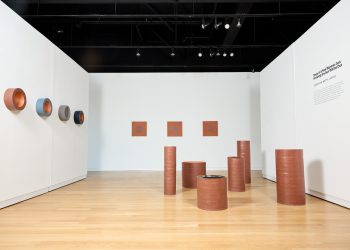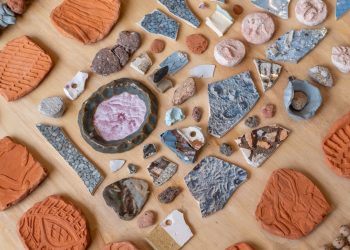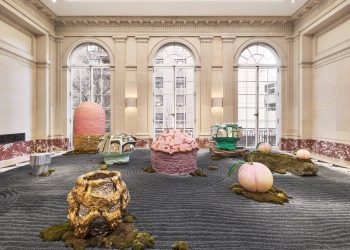Over his fifty-year career, Jim Melchert has cast a remarkably long shadow of grace and influence in the Ceramic arts community. Melchert’s work “can be described, at once accurately and poetically, as a transcendent exploration of mending. Using commercially-manufactured floor tile as his primary material, Melchert engages in deliberate breakage and consequent, system-based repair and elaboration.” Maria Porges
A powerful concept that has guided Melchert’s explorations over the past three decades is reminiscent of the Japanese tradition of Kintsugi, a process of mending something broken. The concept of mending can also be seen as a political action against the increasing pressure of our consumerist society. In his work, we see a Zen-like interaction, an acceptance of change as aspects of human life. “When clay is broken, the gift it gives you is discovering the interior structure. It’s like someone who has just made a first move in chess—it’s a challenge… you move, then the other person makes a move. Whatever I do, the tile comes back with a response.” Jim Melchert
Melchert was born in 1930 in Ohio, and he received degrees from Princeton and the University of California, Berkeley, studying ceramics under Peter Voulkos as his teaching assistant. He taught at SFAI and is a Professor Emeritus at U.C. Berkeley. In 1977, he was hired by the National Endowment for the Arts as Director of the Visual Arts Program. In 1984, Melchert became the Director of the American Academy in Rome.
Melchert’s work has been exhibited are the Whitney Museum and the Museum of Art, the Victoria and Albert Museum in London, the Museums of Contemporary Art in Houston and Los Angeles; at the Museums of Modern Art in San Francisco, Tokyo, and Kyoto; The Los Angeles County Museum of Art; and Documenta 5 in Kassel, Germany.
Jim Melchert’s work is represented by Gallery 16, San Francisco, CA.
Visit Jim Melchert’s website.
Featured work
Selected works, 1993-2020
